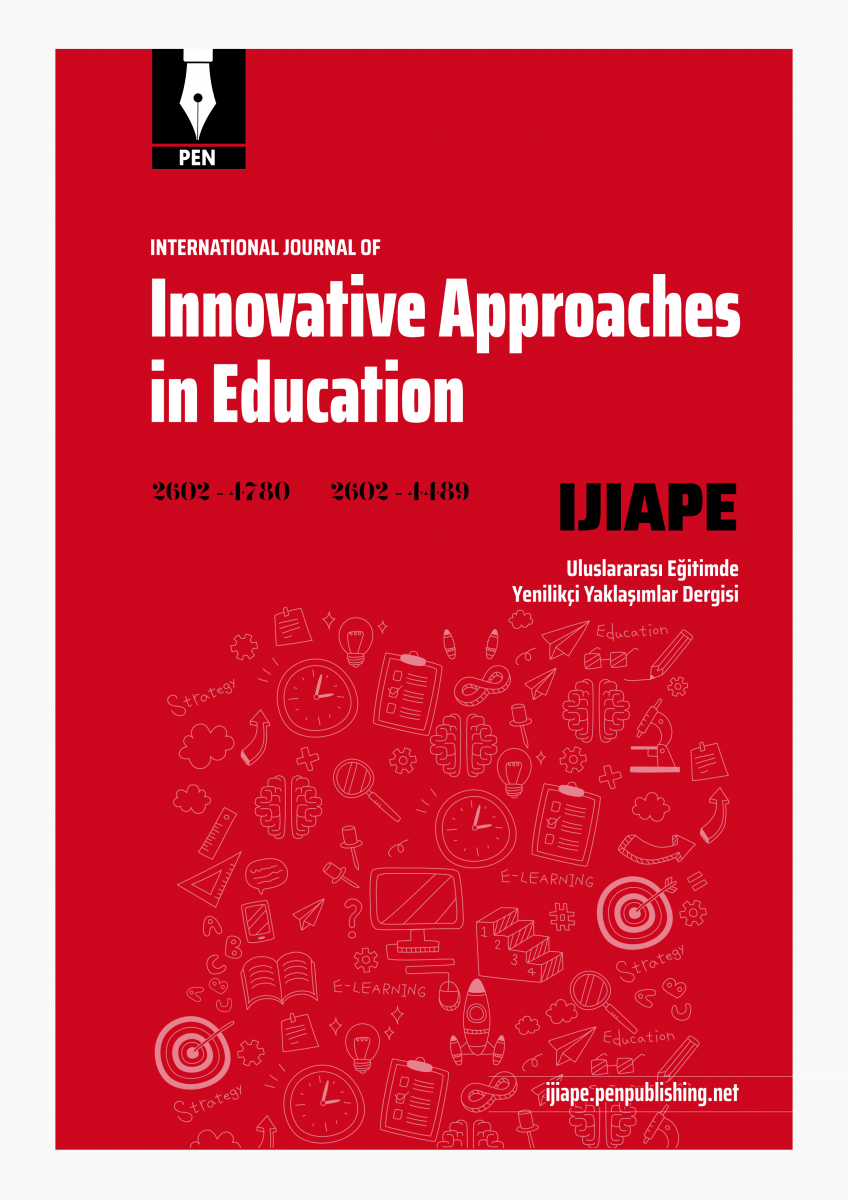- Abruscato, J. (2000). Teaching children science: A discovery approach, 5th ed. Boston: Allyn and Bacon. [Google Scholar]
- Akçöltekin, A. (2021). Öğretmenler İçin Bilimsel Araştırmanın Basamakları. Ankara: Nobel Yayıncılık. [Google Scholar]
- Aktamış, H. (2009). A Study of developing Scientific Process Skills inventory towards Science And Technology Course(Fen ve teknoloji dersine yönelik bilimsel süreç becerileri ölçeği geliştirme çalişmasi). Journal of Buca Faculty of Education. 52-56. [Google Scholar]
- Alabay, E. (2013). The effect of sciencestart assisted science education program on childrens scientific process skills and trust and orientation in scientific attitude (Sciencestart destekli fen eğitim programının 60-72 aylık çocukların bilimsel süreç becerilerine ve bilimsel tutuma güvenme ve yönelime etkisi) (Doctoral Thesis). Konya Selçuk Üniversitesi. [Google Scholar]
- Aydemir, S., Ugras, M., Cambay, O., & Kilic, A. (2017). Prospective pre-school teachers’ views on the nature of science and scientific inquiry (Fen Bilgisi Öğretmen adaylarının bilimsel sorgulamaya ilişkin görüşleri: Türkiye ve Tayvan Örneği). Üniversitepark Bülten, 6(2), 74-87. [Google Scholar]
- Aydoğdu, B. (2014). Science Process Skills (Bilimsel Süreç Becerileri). Science Teaching. Ankara, 99. [Google Scholar]
- Aydoğdu, B., & Ergin, Ö. (2008). The Effects of Open-Ended and Inquiry-Based Laboratory Techniques on Students’ Science Process Skills (Fen ve teknoloji dersinde kullanılan farklı deney tekniklerinin öğrencilerin bilimsel süreç becerilerine etkileri). Ege Journal of Education, 9(2), 15-36. [Google Scholar]
- Bagci-Kilic, G. (2003). Concept maps and language: a Turkish experience(Kavram haritaları ve dil: bir Türk deneyimi). International Journal of Science Education, 25(11), 1299-1311. [Google Scholar]
- Berg, B. L. & Lune, H. (2015). Qualitative Research Methods In The Social Sciences. H. Aydın (Trs. Edt). Konya: Education Bookstore [Google Scholar]
- Cheng, V. M. Y. (2004). Developing physics learning activities for fostering student creativity in Hong Kong context. AsiaPasific Forum on Science Learning and Teaching, 5(2). [Google Scholar]
- Çepni, S., & Çil, E. (2009). Science and technology program. primary school 1st and 2nd level teacher's handbook(Fen ve Teknoloji Programı (Tanıma, planlama, uygulama ve sbs'yle ilişkilendirme) 1. ve 2. kademe öğretmen el kitabı.). Ankara: Pegem Academy. [Google Scholar]
- Çepni, S., Ayas, A.P., Johnson, D., & Turgut, M.F. (1996). Physics Teaching (Fizik öğretimi). Ankara: National Education Development Project Pre-Service Teacher Training Trial Edition. [Google Scholar]
- Creswell, J. (2008). Educational research: Planning, conducting, and evaluating quantitative and qualitative research (3rd edition). New Jersey: Pearson International Education. [Google Scholar]
- [Google Scholar]
- Demir, M. (2007). The factors affecting the pre-service primary teachers'adequacies on science process skills. Doctoral Thesis. Ankara. [Google Scholar]
- Doğan, N. (2017). Blending Problem Based Learning and History of Science Approaches to Enhance Views about Scientific Inquiry: New Wine in an Old Bottle (Bilimsel sorgulamaya ilişkin görüşleri geliştirmek için probleme dayalı öğrenme ve bilim tarihi yaklaşımlarının harmanlanması: eski bir şişede yeni şarap.). Journal of Education and Training Studies, 5 (10)., ISSN 2324-805X E-ISSN 2324-8068 [Google Scholar]
- Ergin, Ö., Şahin-Pekmez, E., & Öngel-Ekdal, S. (2005). Experimental science teaching from theory to practice(Kuramdan uygulamaya deney yoluyla fen öğretimi). İzmir: Dinazor Bookstore. [Google Scholar]
- Geray, H. (2006). Introduction to quantitative and qualitative methods in social research; with examples from the field of communication (Toplumsal araştırmalarda nicel ve nitel yöntemlere giriş: İleişim alanından örneklerle). Ankara: Siyasal Bookstore. [Google Scholar]
- Germann, P.J. (1994). Testing a model of science process skills acquisition: an interaction with parents’ education, preferred language, gender, science attitude, cognitive development, academic ability, and biology knowledge. . Journal of Research in Science Teaching 31(7),749-783. [Google Scholar]
- Guba, E. G., & Lincoln, Y. S. (1982). Epistemological and methodological bases of naturalistic inquiry. Educational Communication and Technology Journal, 30(4),233-252. [Google Scholar]
- Houser, J. (2015). Nursing research: reading, using, and creating evidence. (3rd ed.). . Burlington: Jones ve Bartlett Learning. [Google Scholar]
- Innamorato, G. (1998). Creativity in the development of scientific giftedness: Educational implications. Roeper Review, 21(1), 54-59. [Google Scholar]
- Karasar, N. (2005). Scientific Research Method (Bilimsel Araştırma Yöntemleri) (17. Pressing). Ankara: Nobel publication distribution. [Google Scholar]
- Kuckartz, U. (2010). Einführung in die computergestützte Analyse qualitativer Daten (Vol. 3). Wiesbaden: VS Verlag für Sozialwissenschaften. [Google Scholar]
- Liang, J.-C. (2002). Exploring scientific creativity of eleventh grade students in Taiwan. Austin: The University of Texas at Austin. [Google Scholar]
- Meador, K.S. (2003). Thinking creatively about science suggestions for primary teachers. Gifted Child Today, 26(1), 25-29. [Google Scholar]
- Rillero, P. (1998). Process skills and content knowledge. Science activities, 35 (3). [Google Scholar]
- Padilla, M.J. (1990). The science process skills. Research Matters-to the science Teacher, 9004, 1-4. [Google Scholar]
- Rambuda, A. M., & Fraser, W. J. (2004). Perceptions of teachers of the application of science process skills in the teaching of Geography in secondary schools in the Free State province. South African Journal of Education, 24(1), 10-17. [Google Scholar]
- Ramig, J.E., Bailer, J., & Ramsey, J.M. (1995). Teaching Science Process Skills. USA: New York: Good Apple. [Google Scholar]
- Smith, M.U., & Scharmann, L.C. (1999). Defining Versus Describing the Nature of Science: A Pragmatic Analyses for Classroom Teachers and Science Educators. Science Education, 493-509. [Google Scholar]
- Uman, L. S. (2011). Systematic reviews and meta-analyses. Journal of the Canadian Academy of Child and Adolescent Psychiatry, 20(1), 57. [Google Scholar]
- Wach, E. & Ward, R. (2013). Learning about qualitative document analysis. Przedsiębiorczość-Edukacja, (9), 246-257. [Google Scholar]
- Wang, J., An, G., Ma, Y., & Cai, C. (2017). Research on Relationships Between Two Kinds of Scientific Epistemology Held by High School Science Teachers From Beijing and New York. Educational Sciences: Theory & Practice, 17,, 905–922. [Google Scholar]
|

